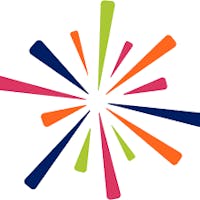Marianne Beja had been in education for more than 30 years when she discovered personalized learning.
“I had reached the point that I thought I would just quit teaching because I felt like I wasn’t connecting with the kids,” said Beja, an instructional coach with Edgefield County School District in Trenton, South Carolina. “I was the queen of ‘sit and get.’ I knew my content, and I knew it well—but it’s not about me. It’s about empowering students to communicate, to collaborate, to learn critical thinking skills. I want to build a community of lifelong learners, and I think personalized learning is the way to do it.”
Beja is just one of several coaches, teachers and leaders in her district that are moving toward more personalized, student-centered practices with the support of the South Carolina Office of Personalized Learning. The state department partnered with KnowledgeWorks in early 2018 to support districts with varying degrees of interest in personalized learning, from those who were already years into transforming their systems to those just getting started. With the Profile of the South Carolina Graduate serving as a lodestar for preparing their learners for graduation, educators from across the state convened in-person and online several times a year to facilitate implementation of personalized learning in their local contexts.
“There’s no mandate to participate. If there’s one thing I’ve learned in my career, it’s that you’re going to have the most impact when you begin with a coalition of the willing,” said Lauren McCauley, lead associate with the South Carolina Office of Personalized Learning. “When folks come to you because they are interested, they will buy in and own this work. When the schools own it, the teachers own it. And when it’s supported by district-level leadership, that’s when you have sustainability. We’re seeing it already. The schools we’re working with, they report what they’ve implemented, and it’s beyond amazing. They’re taking this and running with it.”
With state college and career readiness metrics in need of improvement and reading and math scores below target, state education leaders were willing to take a risk on personalized learning to support all learners; the approach equips teachers with the tools they need to foster relationships with students and really know who their students are as learners—all while empowering students to know themselves so they can own their learning. To date, educators in 61 of the state’s 81 districts have benefitted from the state-led convenings, returning to their districts with practices they can begin using in the classroom and sharing with their peers right away.
“South Carolina is committed to a holistic, ground-up, state education policy framework in support of a true transformation model,” said KnowledgeWorks President Chuck Ambrose, highlighting the integration of tools, resources and policies that support student-centered learning and the classroom practices that reinforce it. “We’re really grateful to be one of the key investors and partners in the work that’s happening in South Carolina. We’re in it for the long haul.”

Want to hear more from KnowledgeWorks? They'll be running a workshop on navigating the future of learning at EdSurge Fusion. All you need to do is register for the conference and then grab your spot in their workshop.
South Carolina educators are supported by state education policy leaders who recognize the unparalleled role they play in preparing graduates to contribute to the future of their communities; that’s why they are committed to helping teachers foster student ownership, reimagine the physical spaces in which learning can take place and examine the pace of student learning. State policymakers are equally as committed to creating a policy system that enables educators to thrive in student-centered environments.
The state education policy conditions outlined in the recent KnowledgeWorks State Policy Framework for Personalized Learning, which aligns district conditions for scaling personalized, competency-based learning with state and local hopes and needs, creates a way forward for education in South Carolina. The framework outlines a path to creating a sustainable education system—at both policy and practice levels—whose success relies on deep commitment from a broad array of stakeholders.
“In the policy world, we spend so much time talking about how you get from the pilot stage to scale, but what makes South Carolina unique is that there was no pilot,” said Lillian Pace, vice president of policy and advocacy with KnowledgeWorks. KnowledgeWorks recently completed an opportunity analysis with the state that mirrors the work done with districts to identify areas of strength and opportunities for growth. “They created an office of personalized learning and a professional learning network focused on personalized learning, and they made it available to everyone.”
Districts and policymakers aren’t the only ones involved in decision-making processes, though. Local school improvement councils comprised of educators, parents and community members alike share ownership of outcomes and alignment to the Profile of the South Carolina Graduate in support of student-centered learning. Because South Carolina graduates? They’re the future of the state.
“I am firmly convinced that personalized learning will be an eye opener for the state of South Carolina, for our communities. I’ve always searched for the answers and to be a better teacher—it was always right there in front of me, and it’s in front of our teachers. But they have to actually step back and allow students to take control of their learning,” said Beja. “We can make it right this time.”



